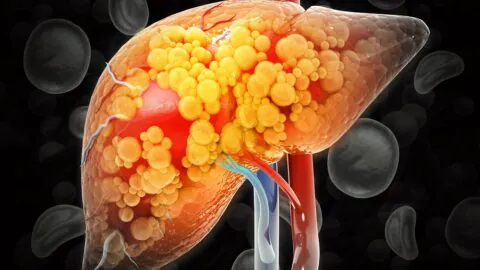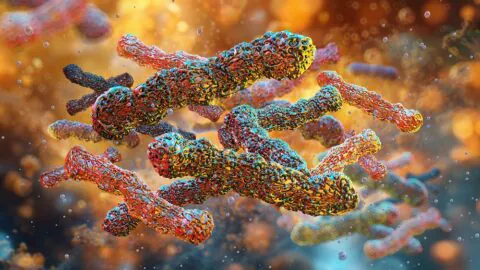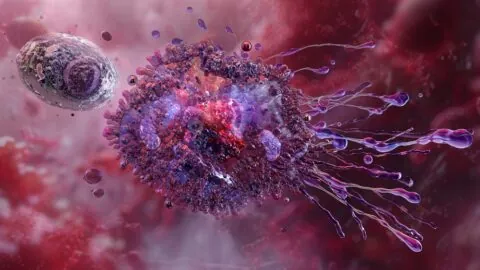January 20, 2026
Scientists have discovered that obesity causes macrophages to ramp up mitochondrial DNA production, leading to more inflammation [1]. Obesity and inflammation Obesity is associated with multiple acute and chronic conditions, including cardiovascular disease and various metabolic disorders [2]. Increased sterile (not pathogen-induced) chronic inflammation is a major mechanism behind this wide impact [3]. A new...
January 05, 2026
Scientists have found that a single microbial species can blunt the negative effects of a high-fat diet due to the unique mix of lipids it produces [1]. They intend to identify its specific lipids in future work. Good neighbors The billions of gut microbes that we share our bodies with can profoundly influence our health....
October 29, 2025
A recent study discovered an association between visceral and, to a lesser extent, hepatic fat with cardiovascular risk factors and carotid atherosclerosis. This association persists even after adjusting for cardiovascular risk factors [1]. Beyond BMI Body mass index (BMI) is a metric that compares height to total weight, including fat located under the skin (subcetaneous...
September 15, 2025
In Nature Aging, researchers have identified and categorized several macrophage subtypes, including a subtype that appears with aging and another that manages nerve function. Not all macrophages follow the same rules Chronic InflammationChronic inflammation refers to a persistent, low-grade buzz of immune activity that settles into the body without the drama of an infection or...
September 11, 2025
In Aging Cell, researchers have published their surprising findings that epigenetic clocks are not significantly related to most measurements of metabolic health after weight loss interventions. The utility of clocks What Are Epigenetic ClocksAn epigenetic clock is a biochemical test that uses DNA methylation levels and accumulation of methyl groups on DNA to determine biological...
June 27, 2025
Scientists have found that visceral fat and subcutaneous fat produce different responses to obesity in male mice and human patients and identified an important regulator of these processes [1]. The tale of the two fats It has been known that visceral fat, which accumulates around organs in the abdomen, and subcutaneous fat, which accumulates under...






